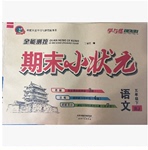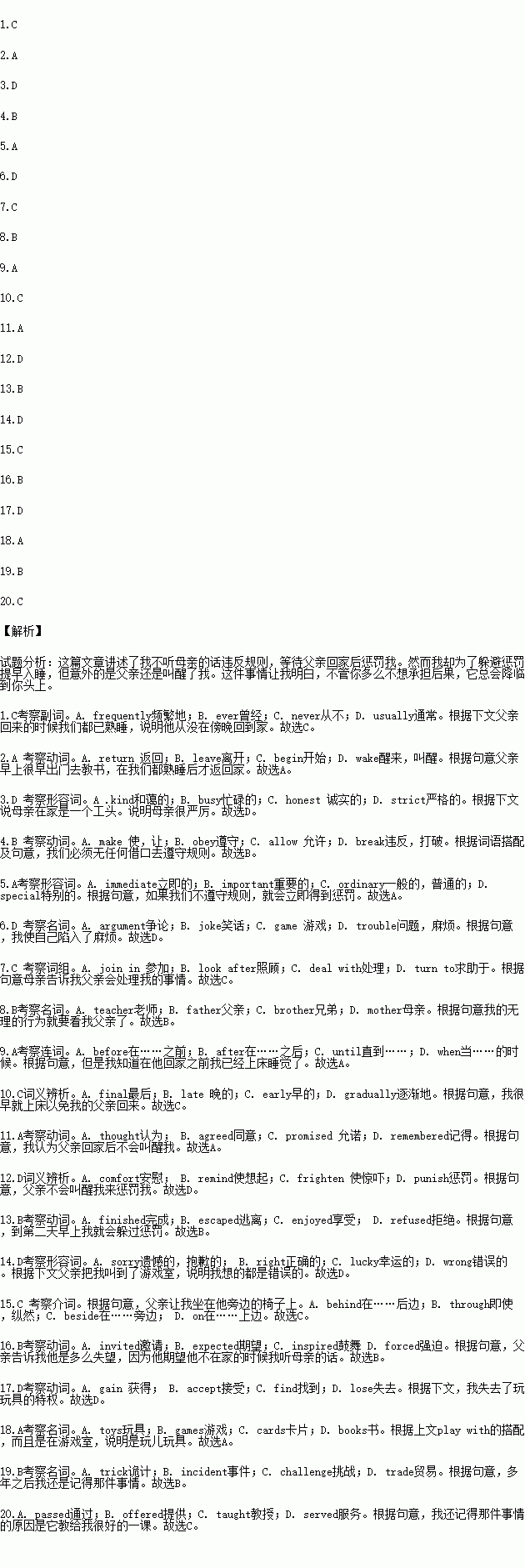题目内容
阅读下面短文,从短文后各题所给的四个选项(A、B、C和D)中,选出可以填入空白处的最佳选项,并在答题卡上将该项涂黑。
My father was a music teacher who traveled to farm homes or homes in smaller communities to teach his students. He was home in the evening because he left home very early to start teaching and would after everyone, except my mother, was fast asleep. Mom was a(n) taskmaster at home. She demanded that we all the rules without any excuses. When we didn’t, there were always punishments.
One day I got myself into a real . But this time, my mother told me that my father would me. It was clear that my improper behavior was being referred to my .
But I knew I would be in bed he got home.
I went to bed just in case my dad came home. I I would sleep when he got home so he wouldn’t wake me up to me, and by the time morning rolled around, I would probably being punished.
I was quite . I got up thinking all was well but instead, Dad called me in to the playroom. He told me to sit down in the chair directly him and then told me how disappointed he was because he me to do what my mother asked when he wasn’t home. He then told me that I would the privilege(特权) of playing with any of my for two days.
I always remember that even after all these years have gone by. The reason I remember it so well is that it me a good lesson. And, that lesson is that consequences will befall(降临到) you no matter how much you don’t want them.
1.A. frequently B. ever C. never D. usually
2.A. return B. leave C. begin D. wake
3.A.kind B. busy C. honest D. strict
4.A. make B. obey C. allow D. break
5.A. immediate B. important C. ordinary D. special
6.A. argument B. joke C. game D. trouble
7.A. join in B. look after C. deal with D. turn to
8.A. teacher B. father C. brother D. mother
9.A. before B. after C. until D. when
10.A. final B. late C. early D. gradually
11.A. thought B. agreed C. promised D. remembered
12.A. comfort B. remind C. frighten D. punish
13.A. finished B. escaped C. enjoyed D. refused
14.A. sorry B. right C. lucky D. wrong
15.A. behind B. through C. beside D. on
16.A. invited B. expected C. inspired D. forced
17.A. gain B. accept C. find D. lose
18.A. toys B. games C. cards D.books
19.A. trick B. incident C. challenge D.trade
20.A. passed B. offered C. taught D. served
 全能测控期末小状元系列答案
全能测控期末小状元系列答案
